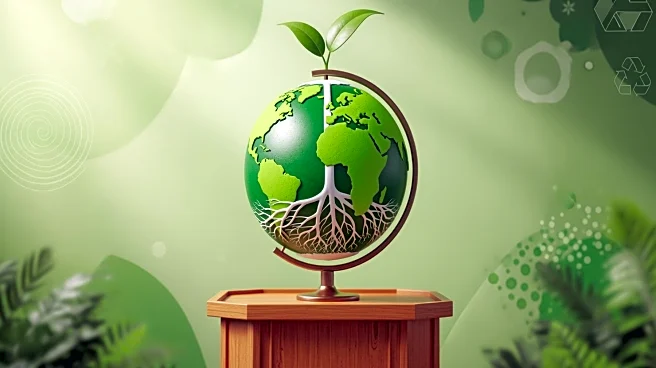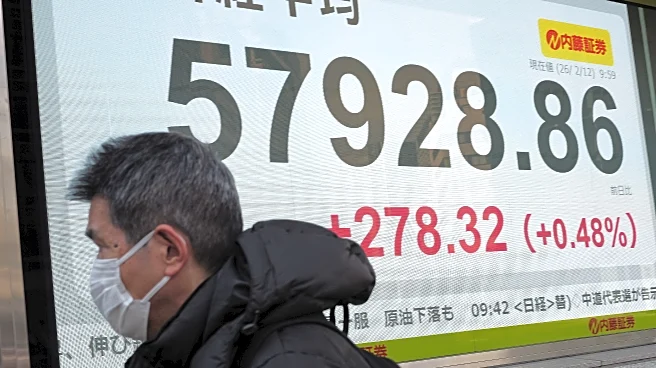What's Happening?
The Energy and Resources Institute (TERI) has released a paper at COP30 in Belém, Brazil, calling for a renewed focus on climate equity through human development and energy justice. The paper emphasizes
the need to balance climate ambition with development goals, highlighting the disparity in energy consumption between high-income and developing countries. TERI proposes a framework that categorizes countries based on their energy use and Human Development Index (HDI), advocating for differentiated responsibilities in addressing climate change. The study argues for a sustainable energy use benchmark and stresses the importance of equitable energy access as a foundation for human development.
Why It's Important?
TERI's call for re-anchoring climate equity is significant as it addresses the imbalance between developed and developing nations in climate negotiations. By linking energy access to human development, the paper highlights the need for a just transition that considers the needs of poorer countries. This approach could influence global climate policies, ensuring that efforts to reduce emissions do not compromise development goals. The framework proposed by TERI provides a scientific basis for equitable climate action, potentially guiding future international agreements and fostering cooperation among nations.
What's Next?
As COP30 progresses, TERI's proposals may gain traction among policymakers and negotiators. The emphasis on equitable energy access and human development could lead to new commitments and collaborations aimed at achieving climate justice. Countries may adopt the HDI-Energy Zoning Framework to guide their climate strategies, balancing emissions reductions with development needs. The discussions at COP30 could also inspire further research and policy initiatives focused on integrating equity into climate action, shaping the future of international climate cooperation.












